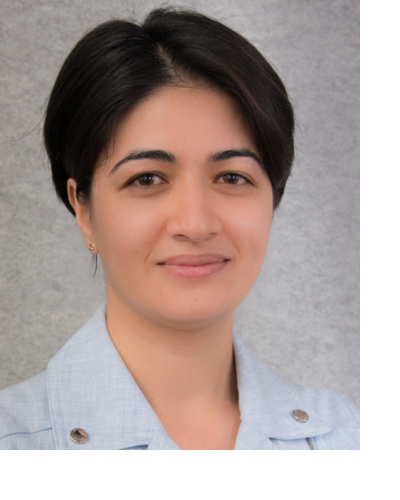<< Back to Event Page: GSN Graduate Student Research Conference 2024
Razieh Nabi (Emory University) - Saturday, May 18, 2024

Talk Title: Using Causal and Counterfactual Thinking to Address Various Sources of Bias in Observational and Algorithmic Data
Abstract:This talk delves into the challenges of deriving valid causal conclusions from data, focusing on three main areas: confounding, missing data, and algorithmic unfairness. We begin by addressing the limitations of traditional methods for handling confounding due to unmeasured variables and introduce novel approaches that utilize data-adaptive machine learning algorithms to develop robust and efficient estimators. Next, we treat missing data as a causal inference issue, employing graphical models to draw parallels between methods for handling missing data and causal identification. This approach offers fresh insights into both fields. Lastly, we explore the ethical dimensions of algorithmic decision-making in critical areas like healthcare and criminal justice. We demonstrate how integrating causal inference with constrained optimization can address biases linked to sensitive attributes, ensuring fairness and rectifying historical injustices. Through these discussions, the talk highlights how causal and counterfactual reasoning can enhance the integrity and ethical standards of statistical analysis and decision-making, promoting more responsible data science practices.
Razieh Nabi graduated from the Johns Hopkins University in 2021 with a PhD in Computer Science, subsequently joining Emory University where she is currently a Rollins Assistant Professor in the Department of Biostatistics and Bioinformatics, with a secondary appointment in Computer Science. Dr. Nabi’s research is at the intersection of statistics, machine learning, and public health, where she focuses on developing innovative causal inference methodologies. Her work tackles critical challenges such as unmeasured confounders in observational studies, the curse of dimensionality, and biases in data—especially informative missing and censored data, and those reflecting historical patterns of discrimination and inequality. Her methodologies have profound implications across various fields including social justice, public policy, and healthcare research.
Miguel Hernán (Harvard University) - Sunday, May 19, 2024

Talk Title: Immortal time and other misunderstandings in causal inference from observational data
Abstract: Biases that result in immortal time are responsible for some of the greatest historical blunders of data analyses for epidemiological and clinical research. Yet these biases disappear when observational data can be used to explicitly emulate a target trial. This lecture characterizes the biases with immortal time and discusses a framework to ensure that immortal time never happens again.
Miguel Hernán uses health data and causal inference methods to learn what works. As Director of the CAUSALab at Harvard, he and his collaborators repurpose real world data into scientific evidence for the prevention and treatment of infectious diseases, cancer, cardiovascular disease, and mental illness. This work has shaped health policy and research methodology worldwide. Miguel is co-director of the Laboratory for Early Psychosis (LEAP) Center, principal investigator of the HIV-CAUSAL Collaboration, and co-director of the VA-CAUSAL Methods Core, an initiative of the U.S. Veterans Health Administration to integrate high-quality data and explicitly causal methodologies in a nationwide learning health system. As the Kolokotrones Professor of Biostatistics and Epidemiology, he teaches at the Harvard T.H. Chan School of Public Health, where he has mentored dozens of trainees and students, and at the Harvard-MIT Division of Health Sciences and Technology. His free online course “Causal Diagrams” and book “Causal Inference: What If”, co-authored with James Robins, are widely used for the training of researchers. Miguel has received many awards for his work, including the Rousseeuw Prize for Statistics, the Rothman Epidemiology Prize, and a MERIT award from the U.S. National Institutes of Health. He is Fellow of the American Association for the Advancement of Science and the American Statistical Association, Associate Editor of Annals of Internal Medicine, Editor Emeritus of Epidemiology, and past Associate Editor of Biometrics, American Journal of Epidemiology, and Journal of the American Statistical Association. He often serves on committees of the U.S. National Academies.”
